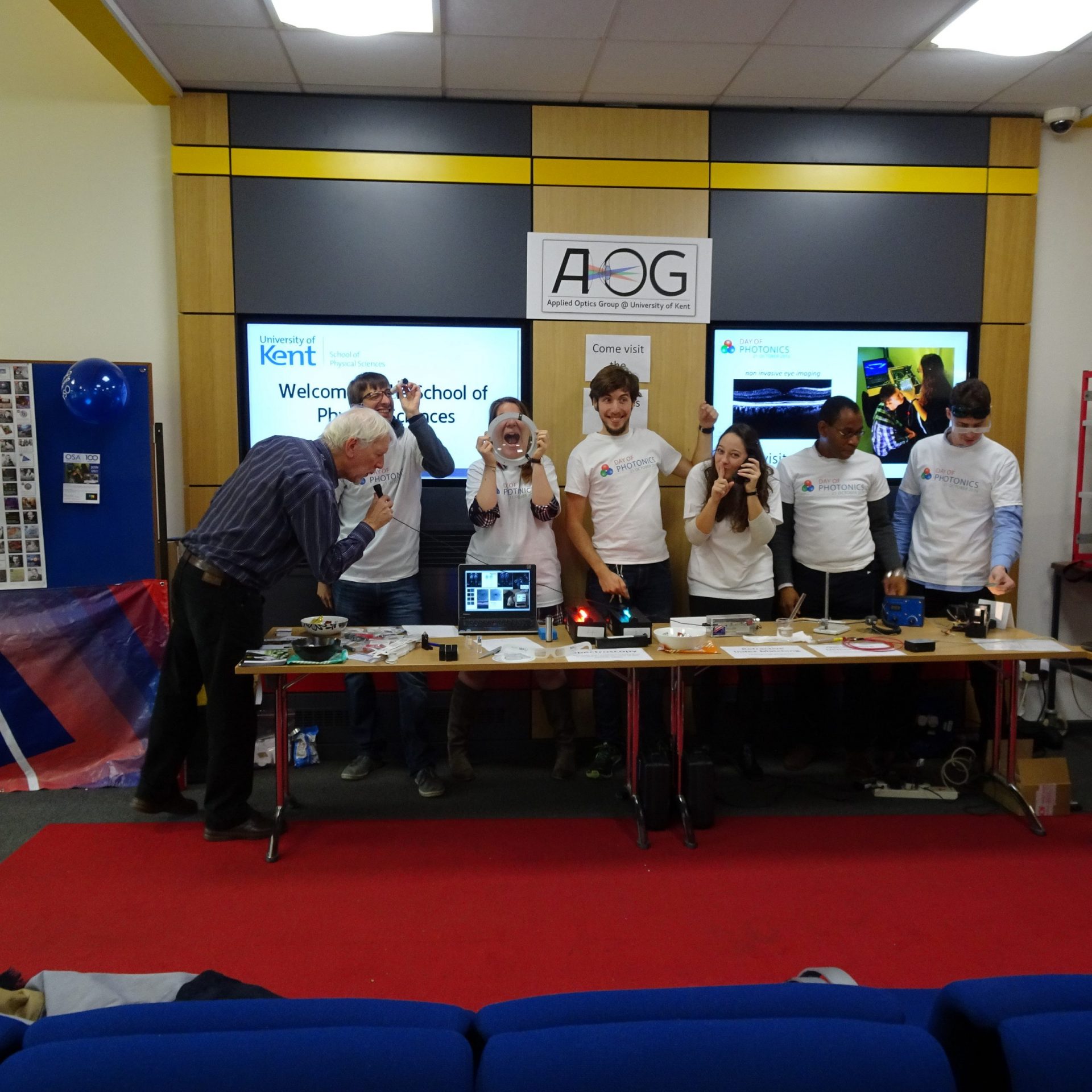
A funded PhD position is available in the field of Computational Imaging for Fibre-Optic Microscopy. The aim of the project is to contribute to the development of advanced techniques for endoscopic microscopes.
Closing Date: Sunday, January 19, 2020
In this project you will work on the development of multifunctional fibre-based microscopes, with a particular focus on recovering phase information through fibres via computational imaging and holography techniques. Building on results from a recent EPSRC grant on ultrathin needle microscopes, you will develop new approaches to fibre-based microscopes and work with collaborators on validation studies in areas such as tissue imaging, microfluidics and fast cell imaging. This will require a mix of laboratory work (optics and optoelectronics), numerical modelling in Matlab or Python, development of software for real-time visualisation and processing, and performing validation studies.
The exact programme of work can be tailored to the student, but the ideal candidate would be a graduate in engineering, physics, computing or a related subject with interests and skills in imaging, electronics or computing, and a desire to work in the lab developing practical devices.
The successful candidate will be based at the University of Kent’s main campus in Canterbury as part of the Applied Optics Group, and work under the supervision of Dr Michael Hughes. Occupying two floors of the University’s Photonics Centre, with the use of modern optical laboratories as well as clean-room and workshop facilities, the Applied Optics Group offers a wide range of optical prototyping and test and measurement equipment to support the project. The group is highly active in biomedical optics research, with regular seminars and international visitors, a programme of outreach activities and an active OSA (Optical Society) student chapter, providing a stimulating research and training environment.
This PhD Studentship is due to start in September 2020.
Entry requirements and Funding: Applicants should have or expect to obtain a first or upper second class honours degree (or equivalent) in Physics, Engineering, Computing or a related subject.
More Information
- – Mike Hughes’ Profile: https://www.kent.ac.uk/physical-sciences/people/463/www.kent.ac.uk/physical-sciences/people/463/hughes-michael
- – Mike Hughes’ Research: https://research.kent.ac.uk/applied-optics/hughes
- – Applied Optics Group: https://research.kent.ac.uk/applied-optics/
- – PhDs in the Applied Optics Group: https://research.kent.ac.uk/applied-optics/join/study/
How to Apply
Informal inquiries to m.r.hughes@kent.ac.uk are welcome.
Funding Notes
This project will either be funded as an EPSRC PhD scholarship or a Vice Chancellor’s Research Scholarship. In either case funding will be offered at the standard UK Research Councils’ rate (currently £15,009; to cover living costs) and will additionally cover tuition fees at the Home/EU rate (currently £4,327 per annum). The Vice Chancellor’s Research Scholarship is available to both UK and EU nationals and will involve undertaking teaching/demonstrating duties during the period of study.